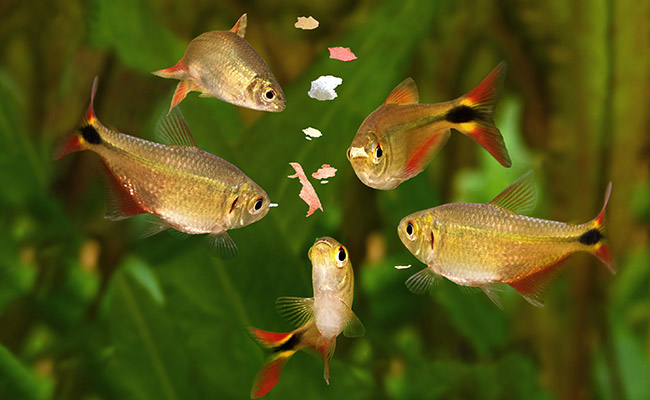The Best Foods for Your Fish: A Comprehensive Guide to Fish Nutrition

As a fish keeper, one of the most important aspects of your job is ensuring that your fish receive a balanced and nutritious diet. Proper nutrition is essential for your fish to maintain good health and thrive in their environment. In this comprehensive guide to fish nutrition, we’ll provide you with everything you need to know about the best foods for your fish.
Understanding Fish Nutrition
Fish are classified as omnivores or carnivores, depending on their species. Omnivorous fish eat both plants and animals, while carnivorous fish only eat other animals. Knowing what type of food your fish need is essential to their overall health and well-being.
Fish require a diet that is high in protein, vitamins, and minerals. Proteins are essential for growth and repair, while vitamins and minerals are necessary for maintaining good health. Fish also require a source of fats and oils for energy.
Types of Fish Food
There are several types of fish food available on the market, each with its own benefits and drawbacks. The best option for your fish will depend on their species, size, and individual nutritional needs.
Flakes
Flakes are a common type of fish food and are suitable for most types of fish. They are easy to store and use, and come in a variety of formulas to meet different nutritional needs. However, flakes can be messy and may not provide enough nutrition for some fish.
Pellets
Pellets are another common type of fish food and are available in different sizes and formulas. They are easy to feed and store, and provide a more complete and balanced diet than flakes. Pellets are also less messy than flakes.
Frozen and Freeze-Dried Foods
Frozen and freeze-dried foods provide a natural and nutritious diet for your fish. They are available in a variety of types, including brine shrimp, bloodworms, and krill. These foods are ideal for fish that require a high protein diet, such as carnivorous fish. However, they are more expensive than other types of food and may require more effort to prepare.
Live Foods
Live foods, such as worms and insects, provide a natural and nutritious diet for your fish. They are suitable for carnivorous fish and can help stimulate their natural feeding behaviors. However, live foods can be expensive and require more effort to prepare.
Choosing the Right Food for Your Fish
When choosing the best food for your fish, consider their nutritional needs and individual preferences. It’s important to provide a varied diet that includes different types of food to ensure that your fish receive all the necessary nutrients.
If you have omnivorous fish, choose a high-quality pellet or flake food that contains a mixture of plant and animal proteins. For carnivorous fish, choose a high-quality pellet or frozen food that contains a high percentage of animal protein. It’s also important to avoid overfeeding your fish, as this can lead to health problems and water quality issues.
To optimize the nutritional value of your fish food, you can supplement your fish’s diet with vegetables, such as spinach, kale, and peas, which provide essential vitamins and minerals. You can also add garlic, which has antibacterial properties that can help improve your fish’s overall health.
Conclusion
In summary, proper nutrition is essential for the health and well-being of your fish. Choosing the right food and providing a varied diet will help ensure that your fish receive all the necessary nutrients. Consider the nutritional needs and individual preferences of your fish when choosing the best food, and avoid overfeeding to keep your fish healthy and happy. By following these simple tips, you can food, and avoid overfeeding to keep your fish healthy and happy. By following these simple tips, you can
